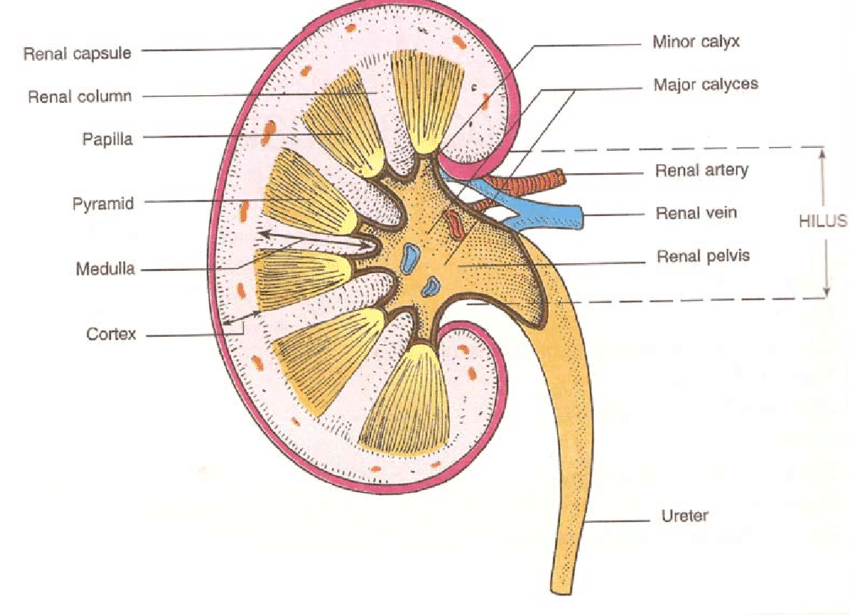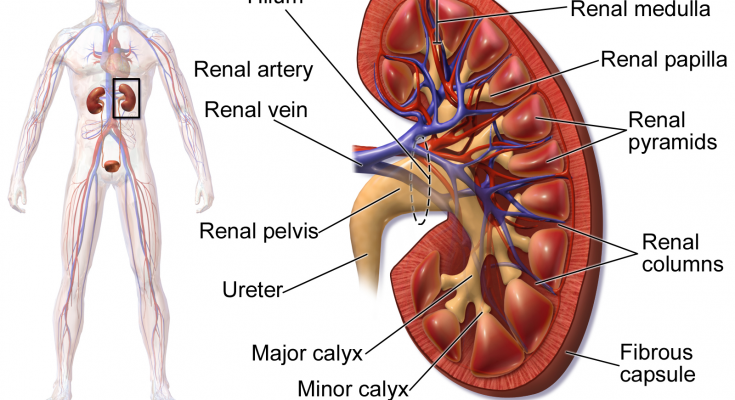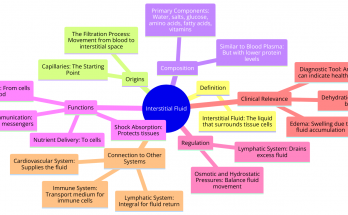Excretion is a biological process by which an organism removes harmful metabolic wastes from the body.
Kidneys
Kidneys are primary organs of the excretory system.These are bean-shaped, located towards the back of the abdominal cavity.

Also Check – Structure of Kidney
12 Important Functions of Kidney
Functions of kidney are as follows –
- Kidneys filter large amounts of blood plasma, they are well positioned to detect changes in blood volume and composition, and respond accordingly.
- Kidney removes excess water from the body, i.e. helps in osmoregulation and homeostasis.
- Kidney removes nitrogenous wastes (urea and uric acid) from blood in the form of urine.
- Nephrons, the most important functional unit of the kidney, remove harmful substances such as urea and other salts along with excess water from the blood and form urine.
- Kidneys help to regulate the osmotic pressure/water balance of the blood.
- It also regulates the optimum pH of the blood.
- The Kidneys are critical in maintaining steady state, or homeostasis, of many blood parameters, including blood volume and pressure, osmolality, concentrations of various solutes, blood pH, and red blood cell count.
- The kidneys control blood volume and blood pressure by removing more or less water as necessary.
- The kidneys control blood pH by adjusting the amount of excreted ACIDS and reabsorbed bicarbonate. Plasma bicarbonate is filtered in the glomerulus during the first step of urine formation, then reabsorbed back into the blood in the proximal tubule. The amount of reabsorbed bicarbonate is regulated in response to changes in blood pH. It increases during acid loads and decreases during alkali loads. In addition, the collecting duct also generates new bicarbonate which exits into the blood during high acid loads.
- The kidneys secrete Erythropoietin (EPO) , a stimulating factor for red blood cells formation.Low levels of EPO are constantly produced to compensate for normal blood cell turnover. When red blood cell count drops, such as during blood loss, the resulting oxygen-deficiency state is detected by the kidneys, which respond by increasing their EPO secretion.
- The kidneys are also involved in calcium homeostasis.
- In response to low blood calcium levels, Parathyroid hormone( PTH), stimulates the kidneys to produce the hormone calcitriol .Calcitriol promotes absorption of dietary calcium in the small intestine and increases calcium reabsorption by the kidney. PTH itself also causes the kidneys to retain calcium.
Also Check – Excretory System Class 10
Also Check – Describe the Process of Urine Formation in Kidneys Class 10


2 Comments on “12 Important Functions of Kidney – Class 10”